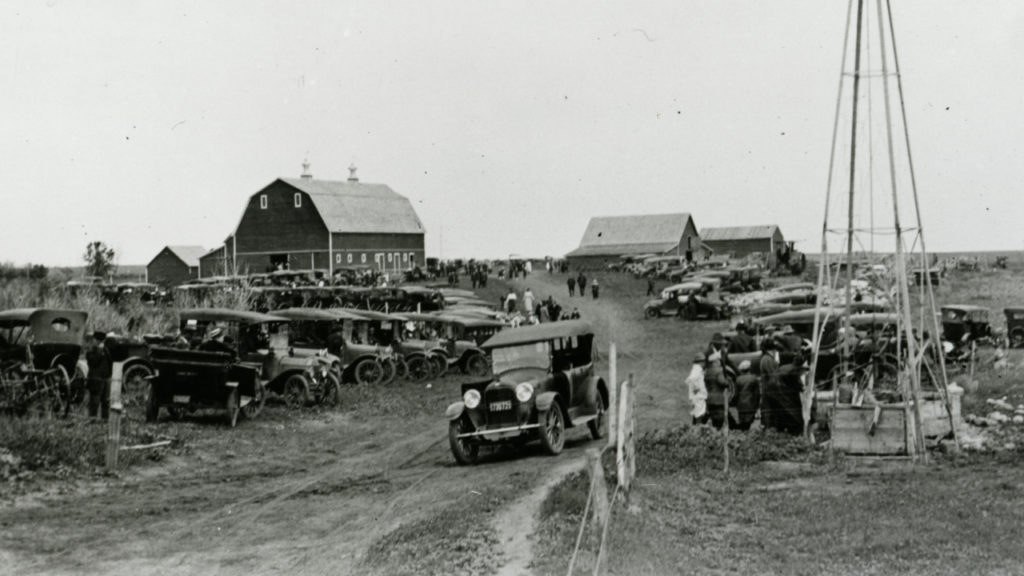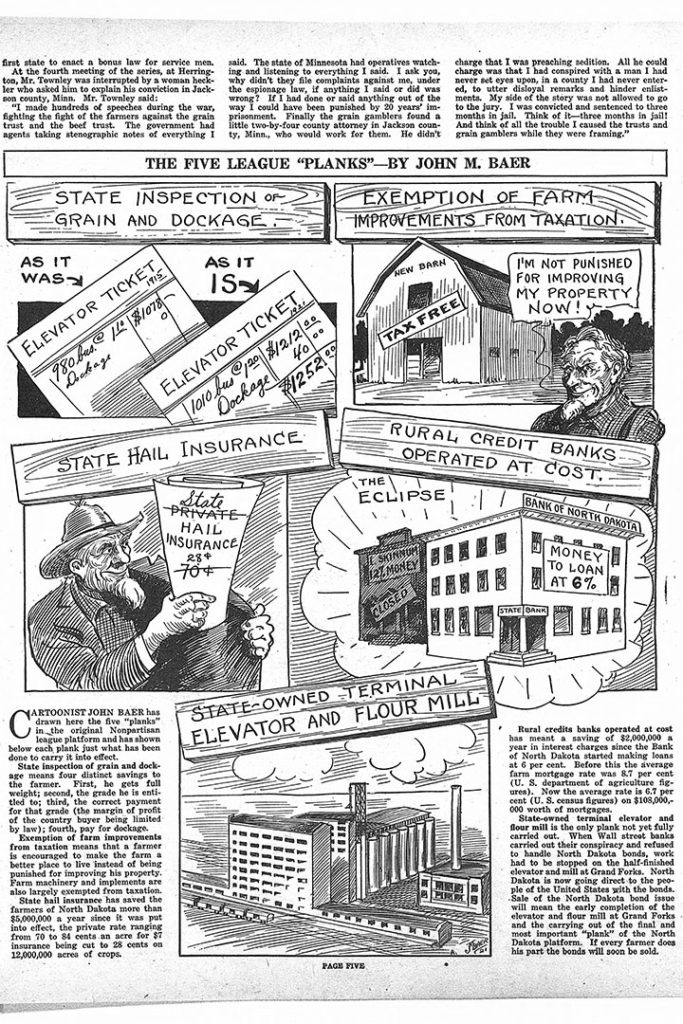
The Nonpartisan League was born on a farm near Deering, North Dakota. In February 1915, A.C. Townley appeared at the farm of Frank B. Wood to pitch the idea of a new political movement that would not be tied to the Democratic, Republican or Socialist parties. Wood and Townley had met earlier in Bismarck. At that time Wood invited Townley to come to his farm in the spring after the snow melted.
The always-restless Townley did not wait for spring. The two men talked deep into the night. Wood was at first skeptical, but Townley’s unrelenting enthusiasm finally convinced him. After several days of passionate talk, the two men scribbled out a League platform on a scrap of wrapping paper by the light of a kerosene lamp. The next morning, they steered a bobsled to neighboring farms. Frank Wood performed the introductions, Townley made the pitch. The combination was extremely effective. Eventually the Nonpartisan League gained more than 100,000 members in North Dakota. Four years after its formation in west-central North Dakota, the League had entirely taken over the state government of North Dakota.
As it was originally envisioned, the League’s program would create a statewide network of socialist institutions: rural credit banks scattered throughout North Dakota, along with packing and cold storage plants. In addition to one large terminal elevator to be located out of North Dakota (at a national shipping port), a series of local elevators and flour mills would be established within the state to give farmers a viable local alternative to commercial elevators that took their marching orders from railroads, Minneapolis banks and milling interests. Mandatory state-provided hail insurance would provide every farmer coverage at substantially lowered costs.
The Original Platform of the Nonpartisan League
- State ownership of terminal elevators, flour mills, packing houses and cold-storage plants
- State inspection of grain and grain dockage
- Exemption of farm improvements from taxation
- State hail insurance on the acreage tax basis
- Rural credit banks operated at cost
In the original program, the state’s severe credit problems would be solved by rural credit banks, not (yet) a central State Bank of North Dakota.


